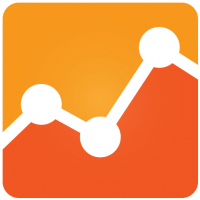 You wouldn’t run a radio station without some sort of system to measure how you’re doing: Nielsen ratings, call-out research, perceptual studies, etc. By the same token, if you’re putting in effort to produce a website, you want to be able to gauge its performance. There are lots of tools that can help you do this, but perhaps the most important is Google Analytics.
You wouldn’t run a radio station without some sort of system to measure how you’re doing: Nielsen ratings, call-out research, perceptual studies, etc. By the same token, if you’re putting in effort to produce a website, you want to be able to gauge its performance. There are lots of tools that can help you do this, but perhaps the most important is Google Analytics.
What is Google Analytics?
Google Analytics is a free tool that allows you to track and measure people’s behavior when they visit your website. It is easy to implement: your webmaster just inserts a few lines of code into your website’s header. Once you’ve verified that they code is working, you can log into the Google Analytics dashboard and learn all sorts of interesting stuff, including:
- How many people are coming to your website in a specific time period
- Where they are coming from (Social media? Search engines? Links on other sites?)
- Which pages they are looking at
- How long they are spending on the site
- What type of device are they using (Desktop? Smartphone? Tablet?)
- And much more.
If you don’t already have Google Analytics installed on your website, ask your webmaster to install it now. You can find instructions here.
Weekly Review
Once you have Google Analytics installed, you should take the time to review it. Just as you conduct a weekly programming to review your on-air content (set up contents, adjust music rotations, etc.), you should set up a weekly meeting to review your online content.
Make sure you have all the appropriate people in the room: Your program director, your webmaster, your promotion director, and anybody else appropriate.
During the first half of this meeting, review your Google Analytics. You can set up Google Analytics to automatically email out a weekly report that highlights the statistics you care most about (see these instructions). See which web content is attracting your audience and which is not.
If you have any other online tools that provide analytics — such as your email service provider, your social media management tool, your podcast or video host, etc. — review them at this time as well. In short, take a look at what you’ve already done online and see how well it’s working.
During the second half of this weekly meeting, look ahead at the upcoming week. Map out your online content for the week: Who’s blogging about what? When will each of those posts be published? If you have any podcast episodes or videos that are being produced, assign these as well. Create a Content Calendar using a Google spreadsheet to keep track of your upcoming content.
Get the Content Calendar Template
The bottom line: You’re investing a lot of effort into your online strategy. Make sure you’re measuring your progress so you can adjust your strategy accordingly. Google Analytics can help.
More Digital Tips
- How WMGK Pulled Off a Twitter Takeover with Steven Van Zandt
- Review These 8 Digital Places Where Listeners Interact With Your Station
- Meta Has Introduced Threads. What Should Your Radio Station Do?
- 7 Ways to Clean Your Radio Station’s Digital House During Downtime
- Twelve Ways to Promote the Hashtag for Your Radio Station’s Next Event
- A Simple Digital Treat to Thank Your Radio Listeners This Thanksgiving - November 13, 2023
- Interview Questions When Hiring Your Radio Station’s Next Digital Marketing Manager - November 6, 2023
- A Radio Conversation with ChatGPT: Part 2 – Promotions - October 30, 2023




